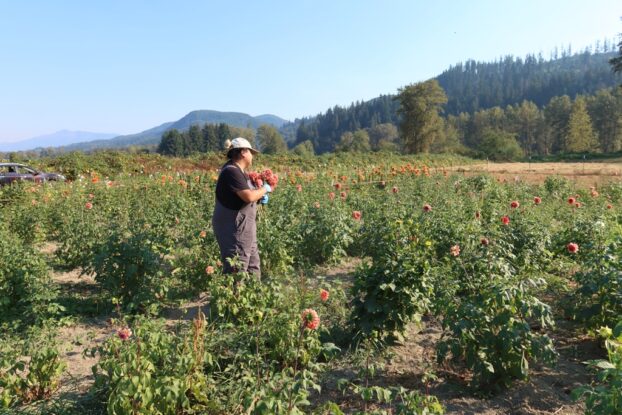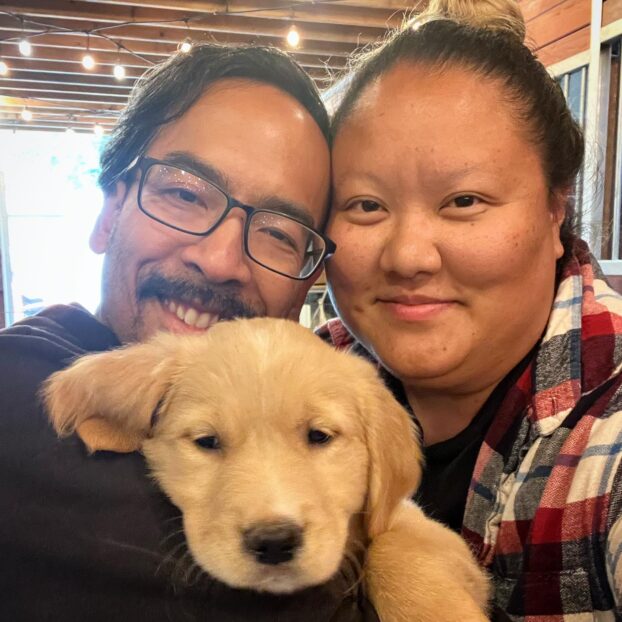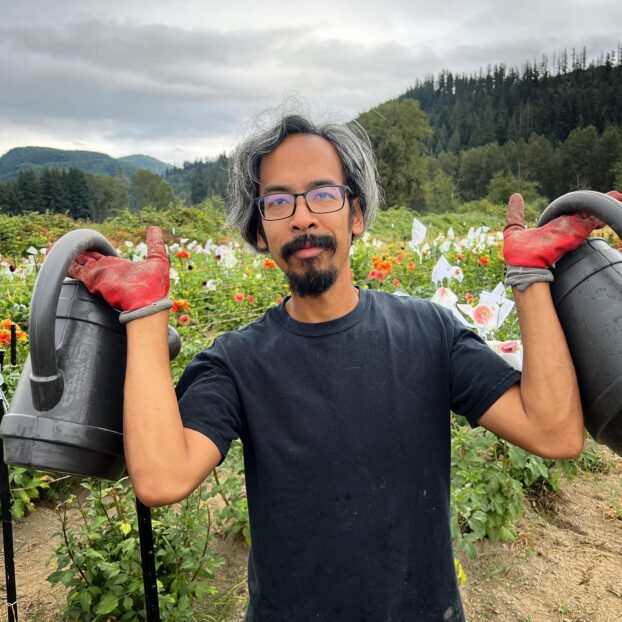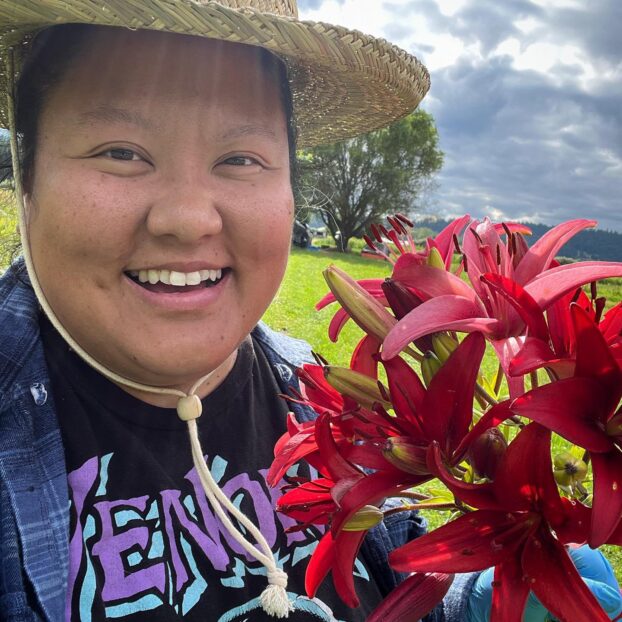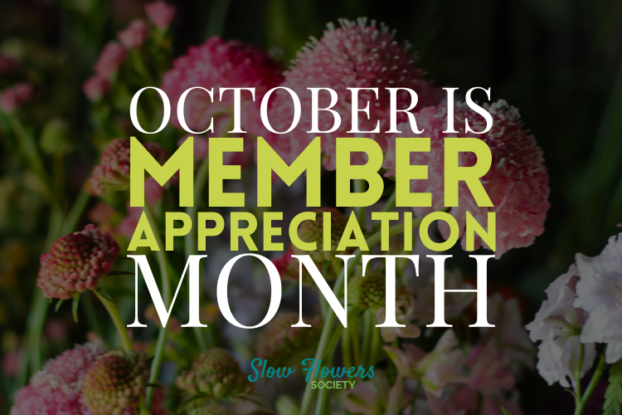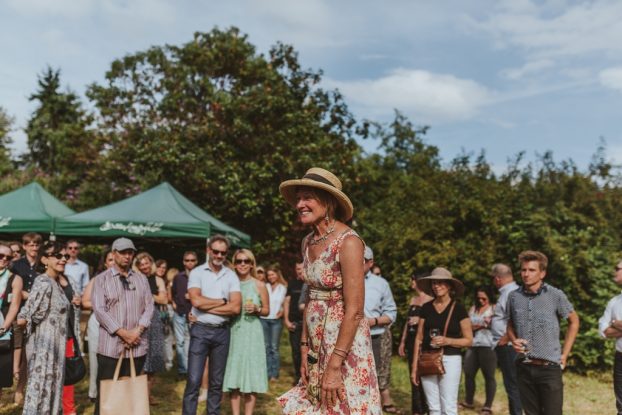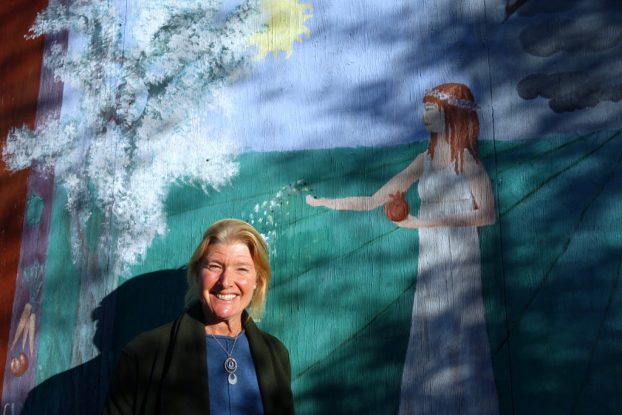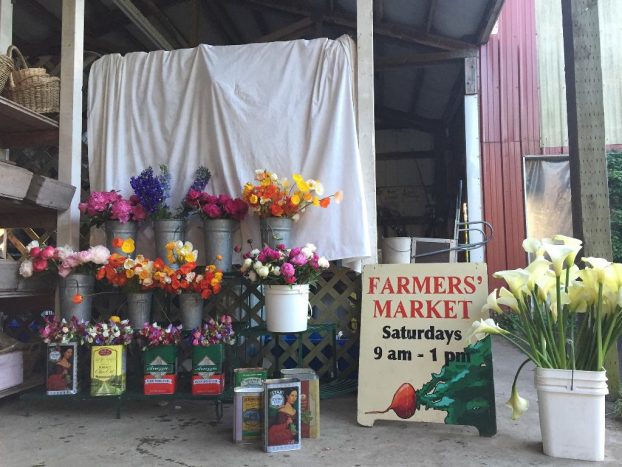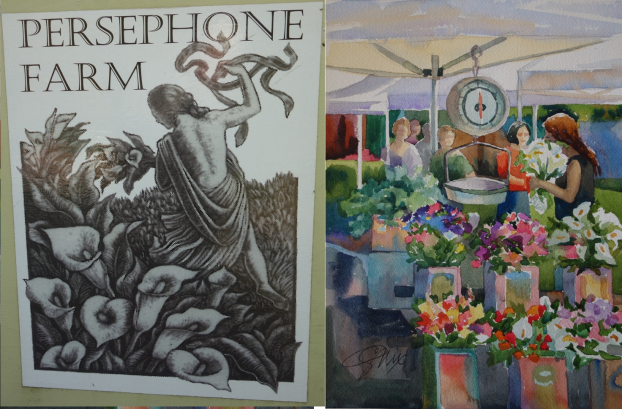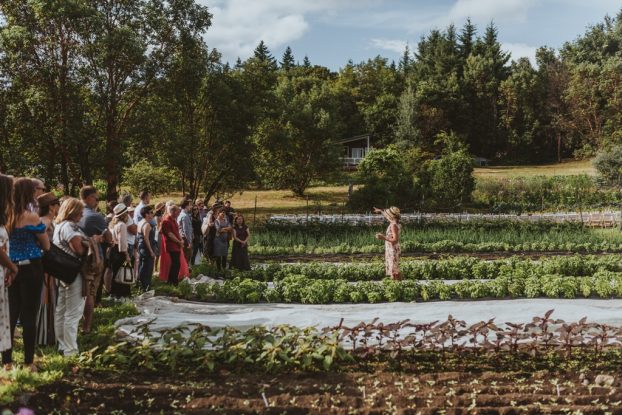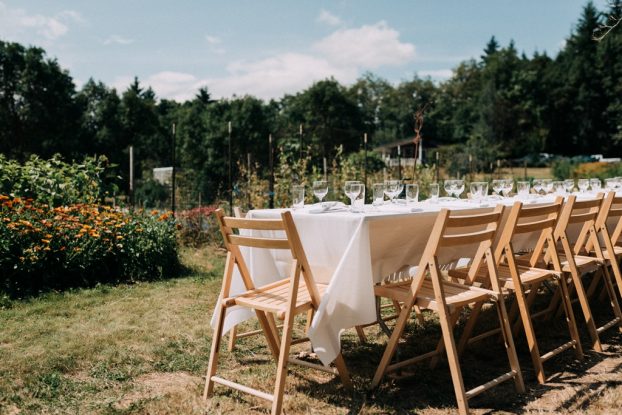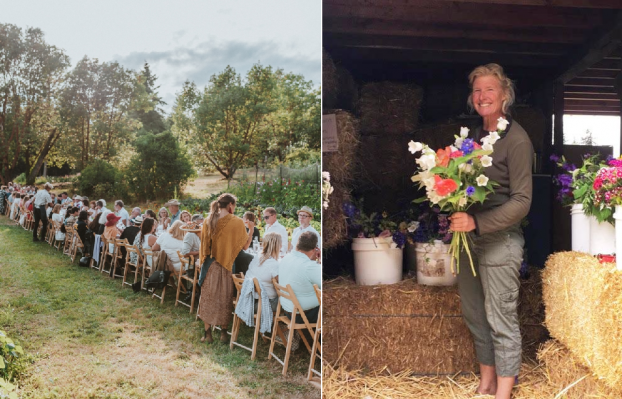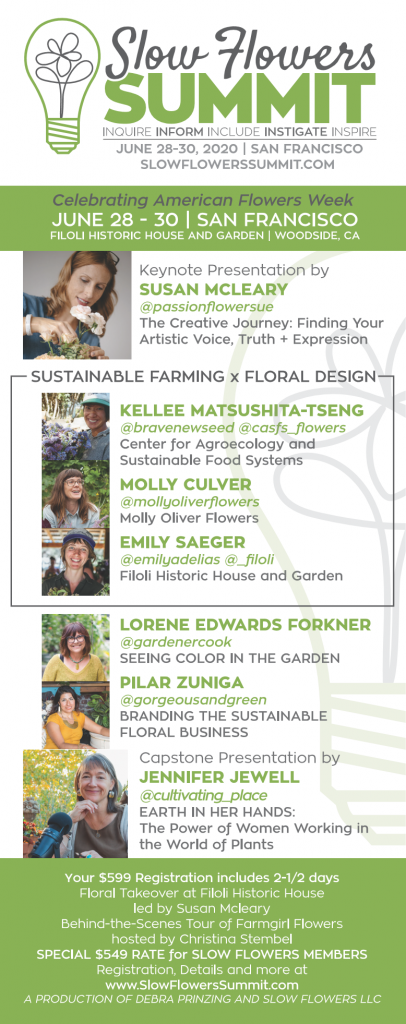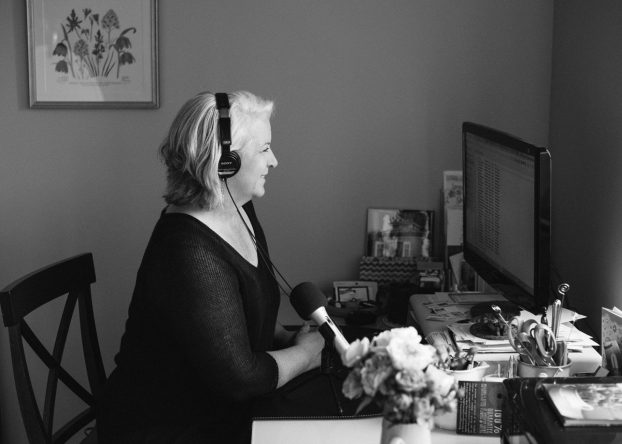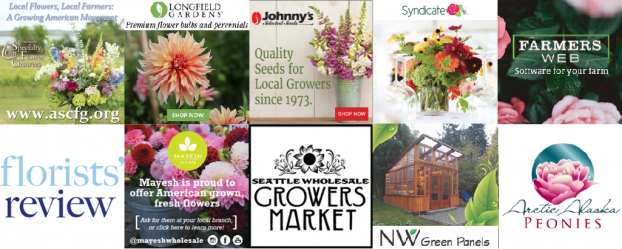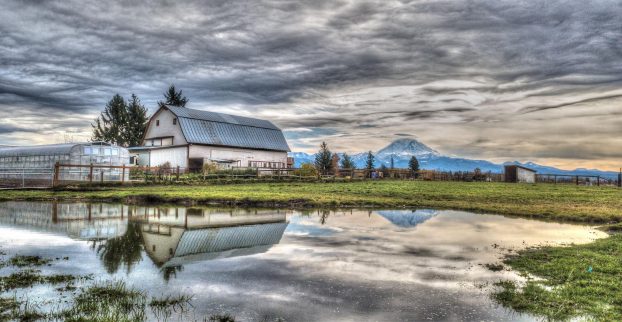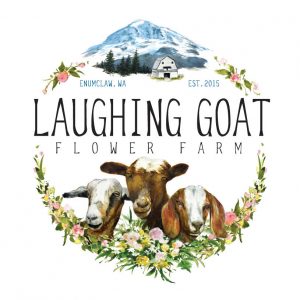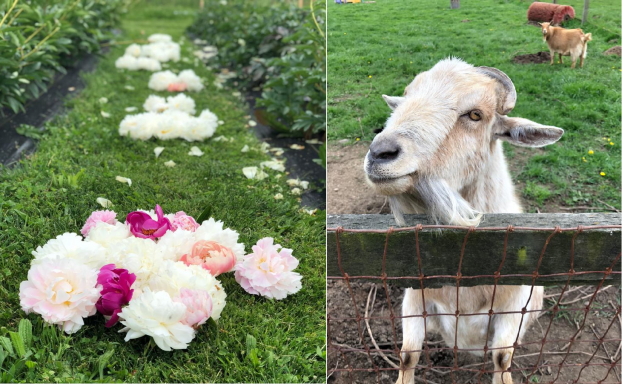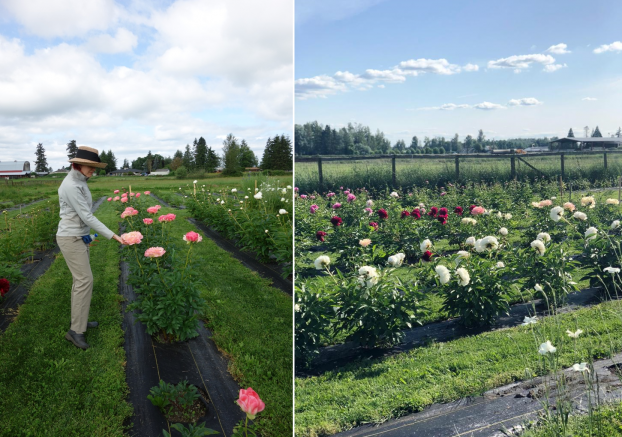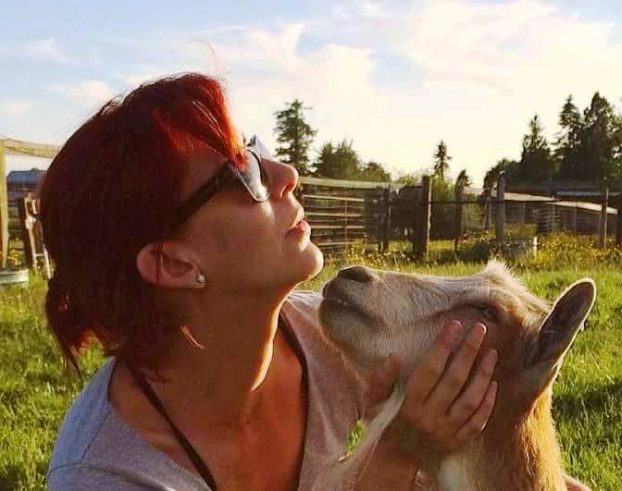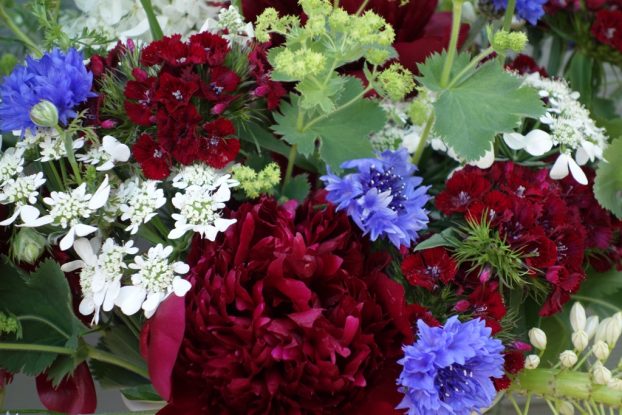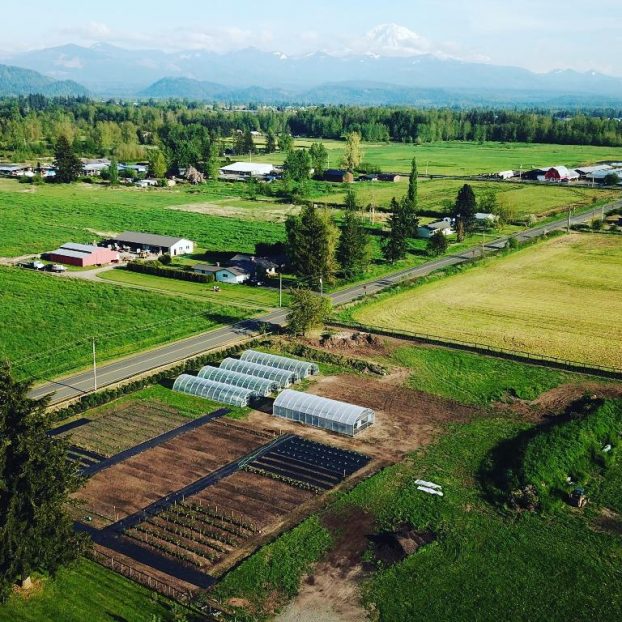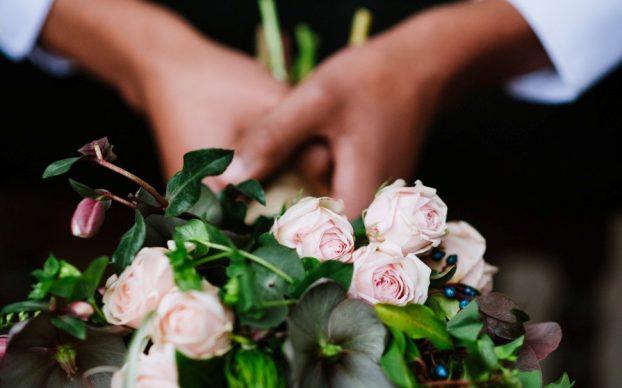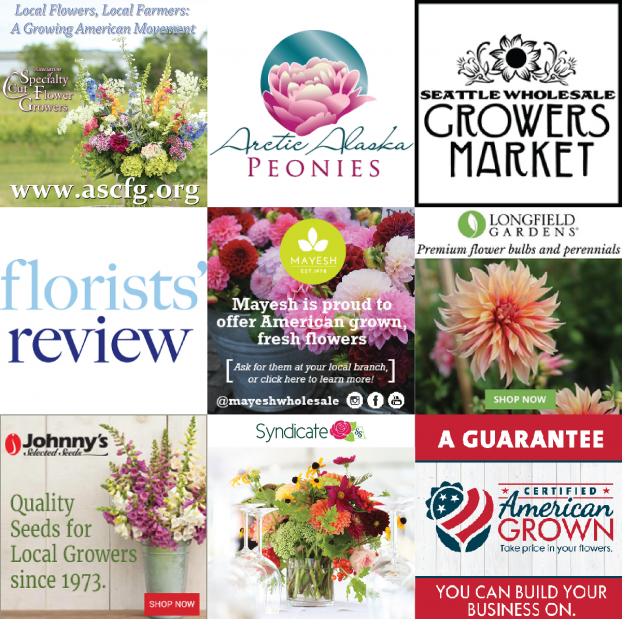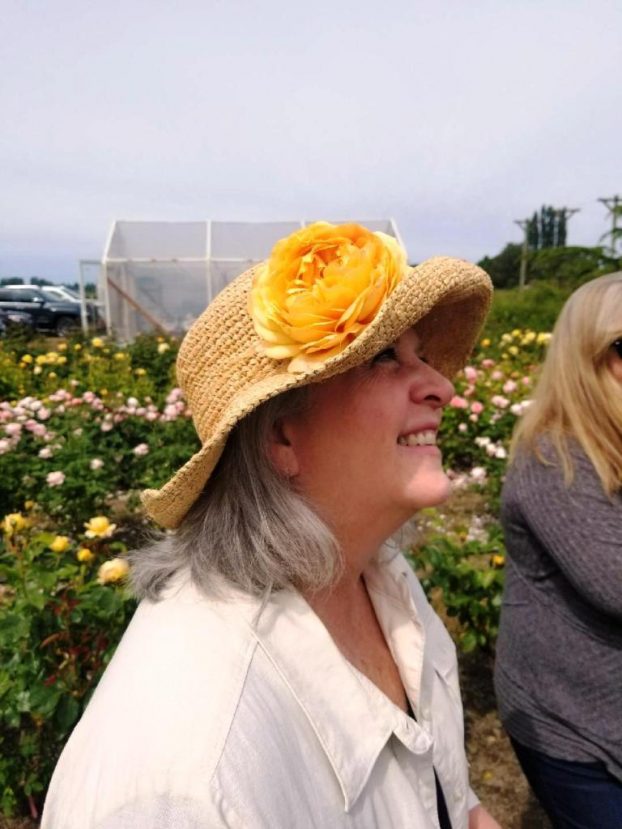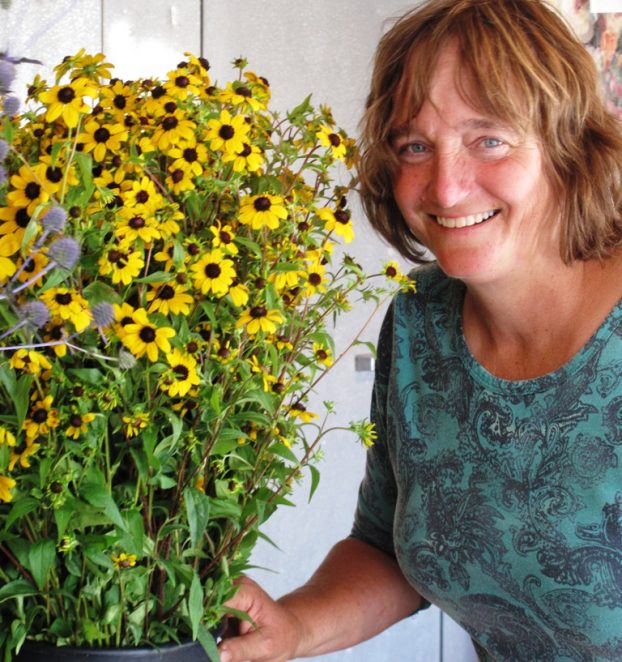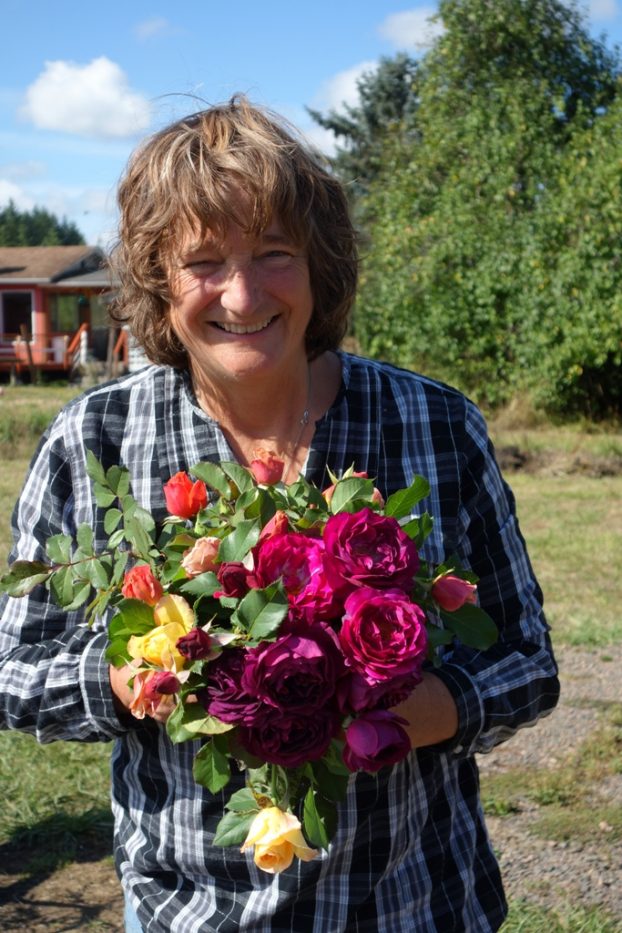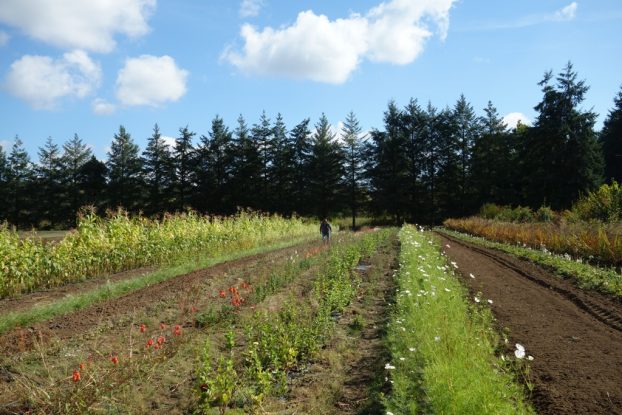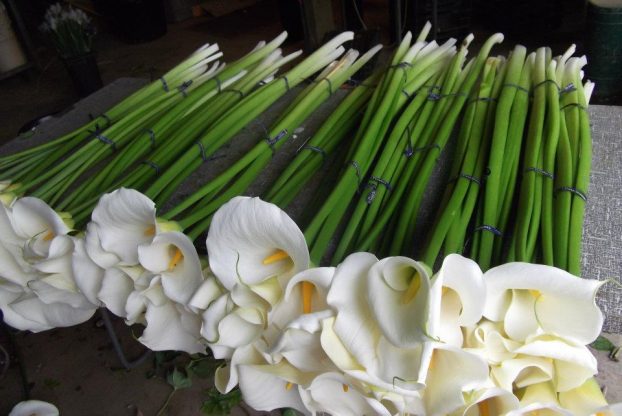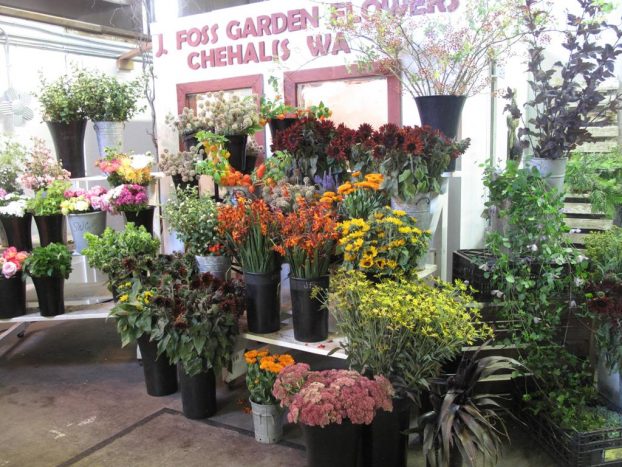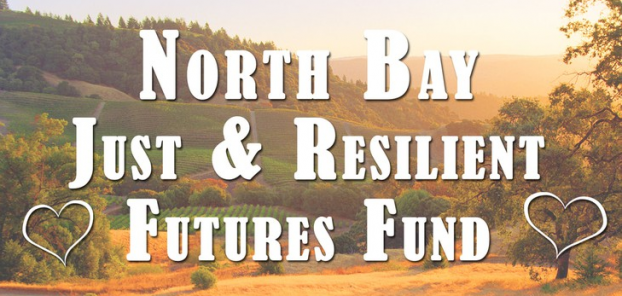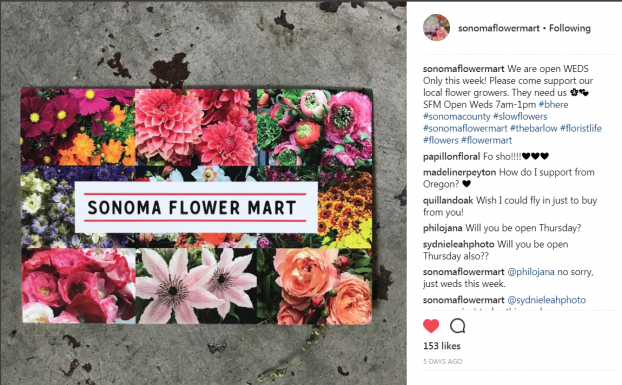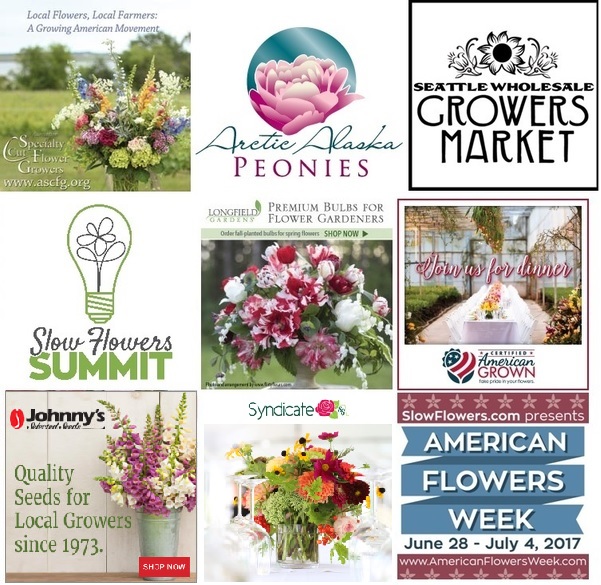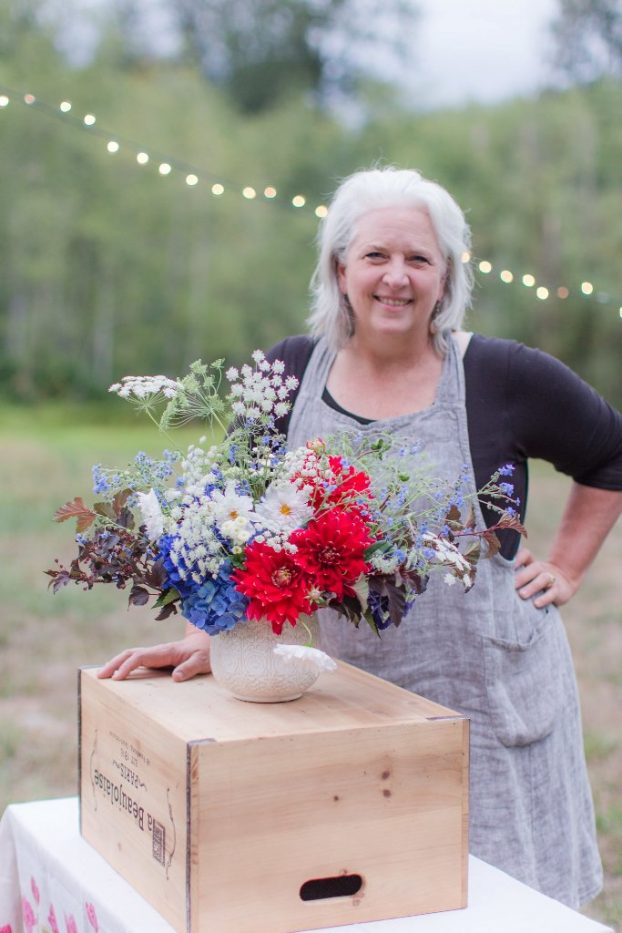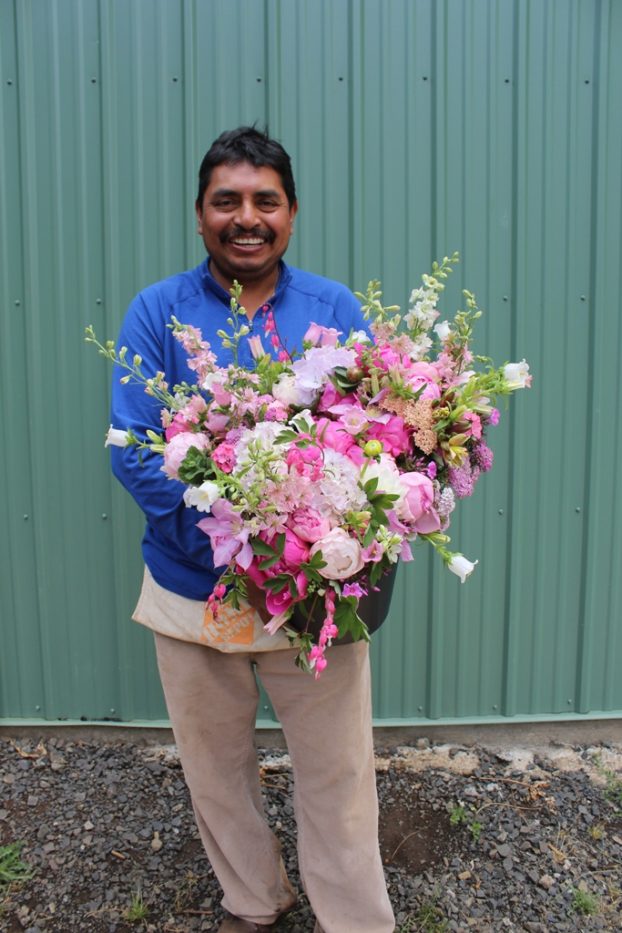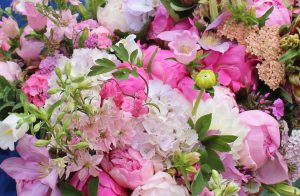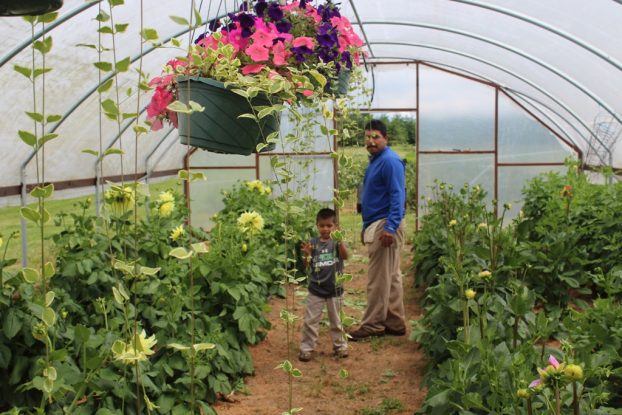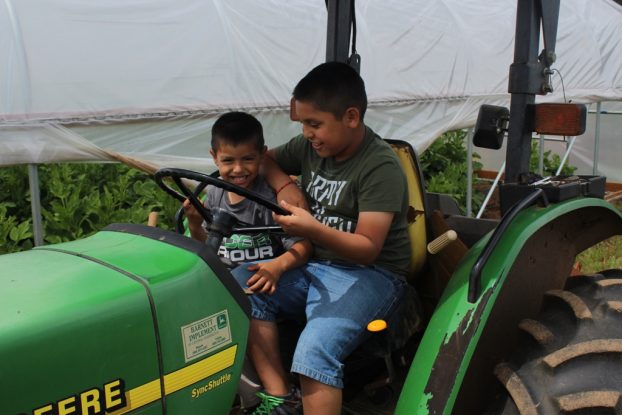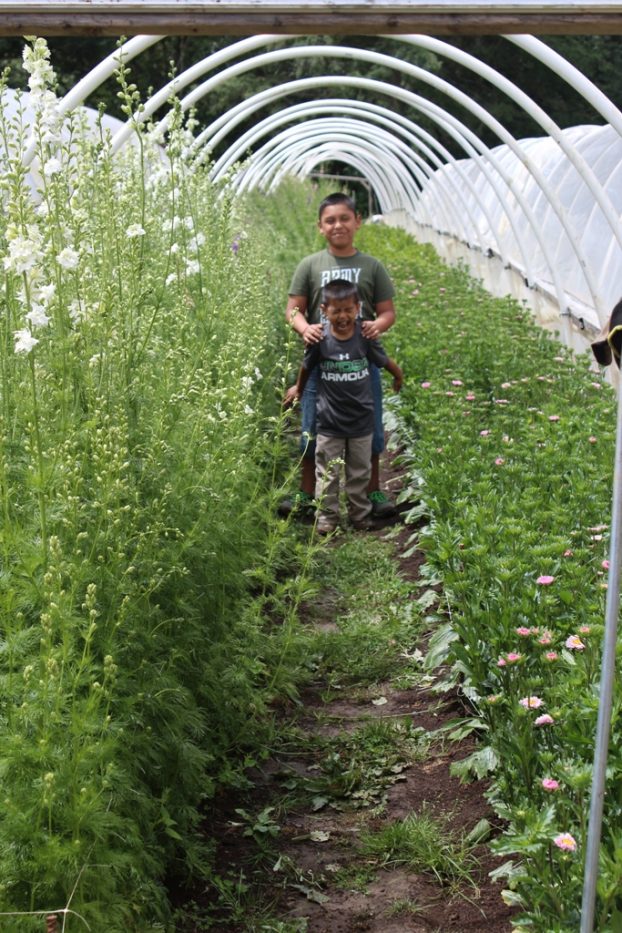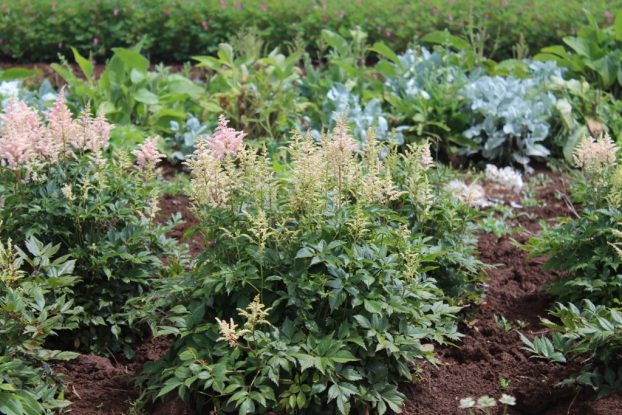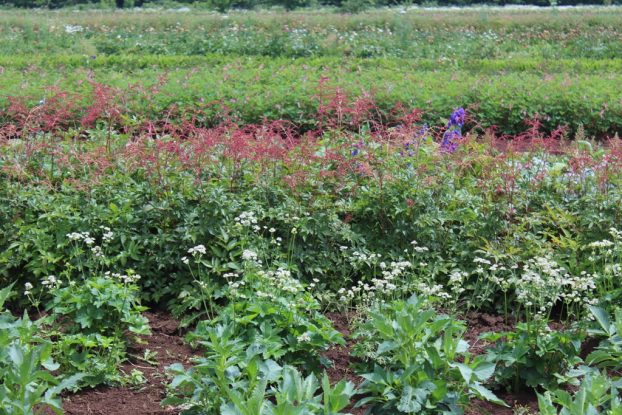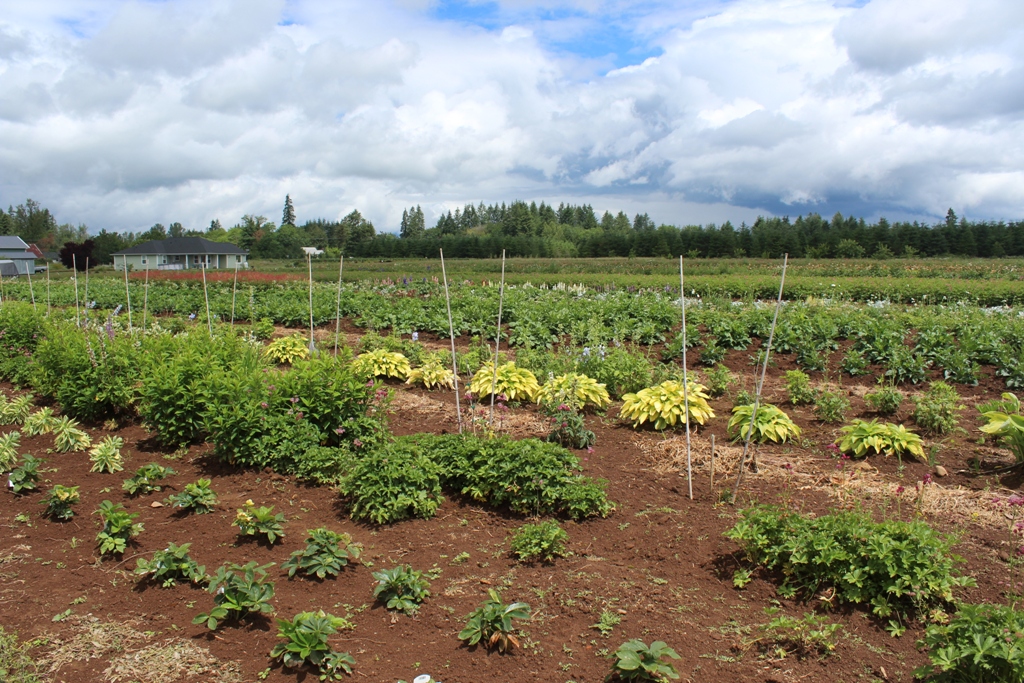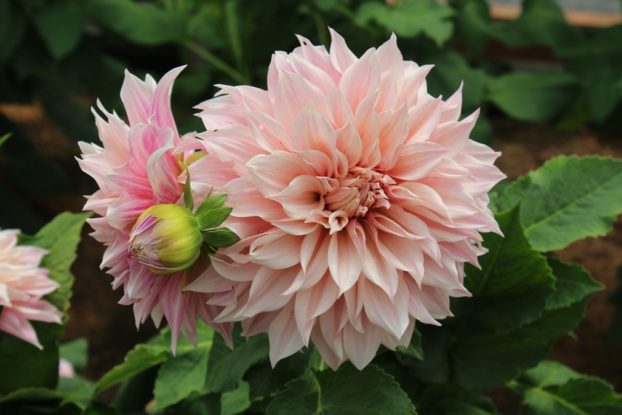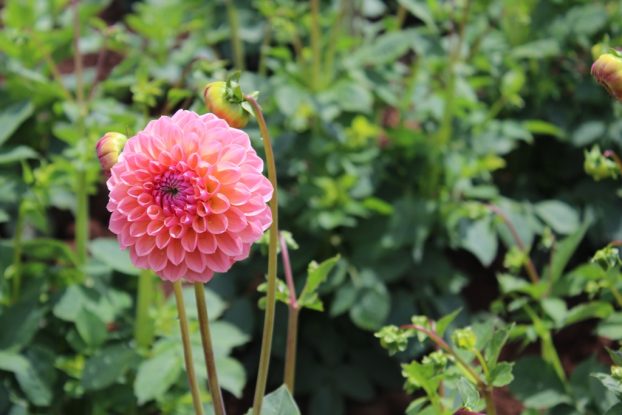Podcast: Play in new window | Download
Subscribe: Apple Podcasts | Podcast Index | RSS | More
Farmer-florist Stacy Marshall recently opened her beautiful flower farm in historic Poulsbo, Washington, to host British sustainable design educator Rachel Wardley of Tallulah Rose Flower School. I spent a morning visiting with these two floral friends to learn about their recent collaboration to elevate local flowers, seasonal flowers, and sustainable practices.
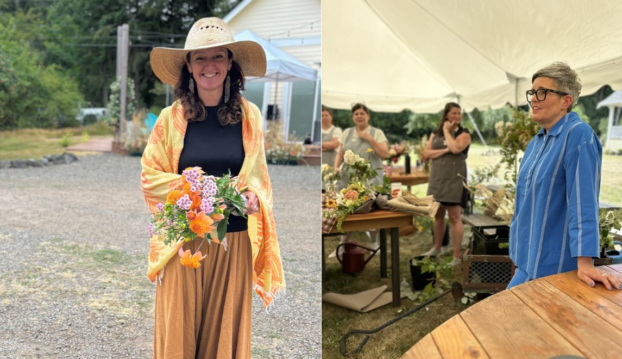
Stacy Marshall says she has realized a long-held dream to learn floristry skills in an immersive setting from an experienced, talented designer. This past July, she hosted UK-based floral educator Rachel Wardley of Tallulah Rose Flower School, who traveled to Poulsbo, Washington, to lead an intimate, five-day session for a group of students, including Stacy, who hosted the workshop at Petal & Pitchfork Farm and also supplied many of the seasonal blooms for Rachel’s instruction and the students’ hands-on projects and installations.
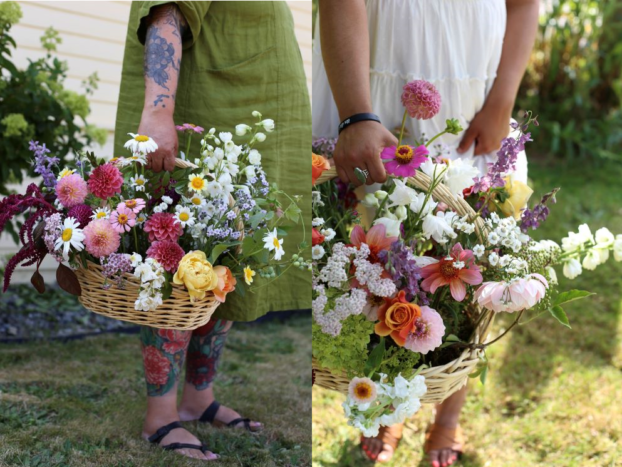
The sold-out workshop attracted the attention of the local press, and Kitsap Sun daily newspaper sent a reporter and photographer to document the session. I was thrilled to see Slow Flowers mentioned in the context of Stacy’s story as a Slow Flowers member – see link to that story below.
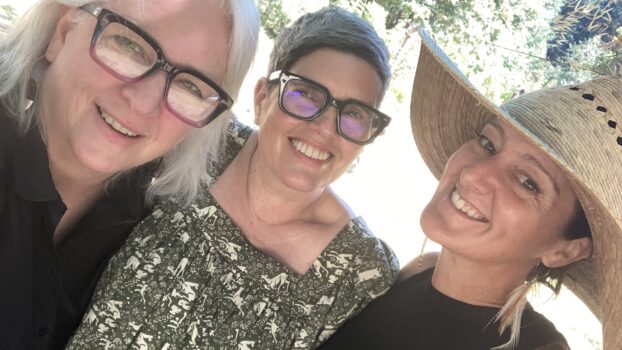
Stacy and Rachel invited me to stop by for a visit, and it was a true delight to make the Saturday morning drive to Washington’s Kitsap Peninsula, to meet them, and record our conversation for you.
Here’s a bit more about both women:
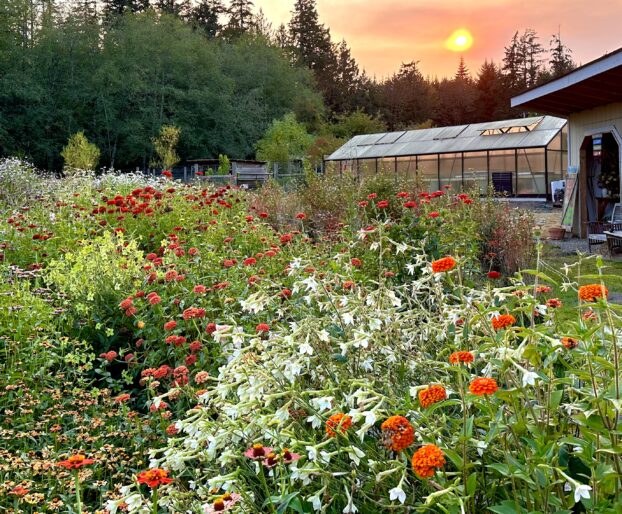
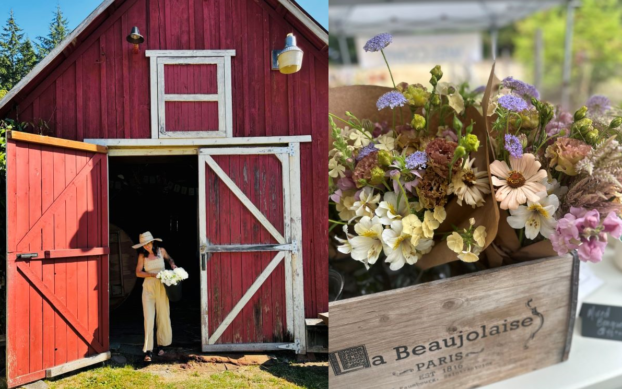
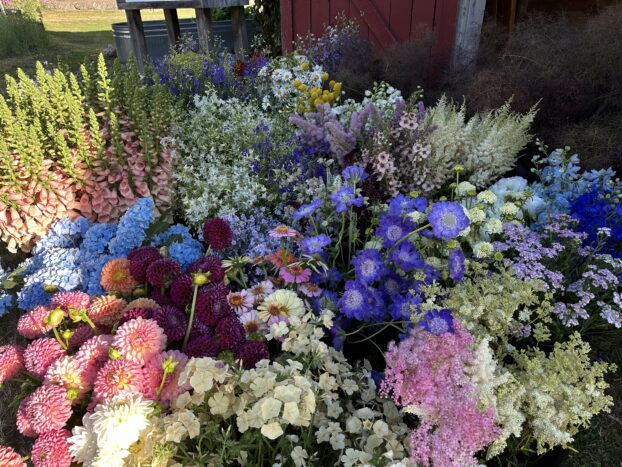
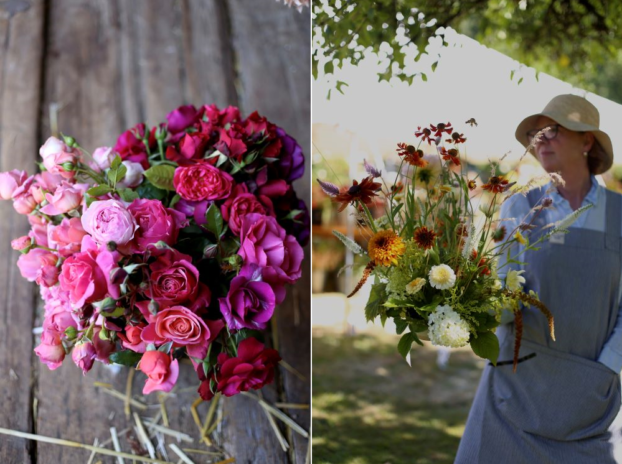
After a career in fashion and a busy London life Rachel Wardley turned her attention to the world of flowers. She trained at the renowned Jane Packer Flower School in 2005 and had the honor of meeting the inspirational founder, an introduction she is particularly grateful for. After relocating to Bath, Rachel opened a florist shop, a wedding and event business, and Tallulah Rose, a flower school dedicated to nurturing career change students.
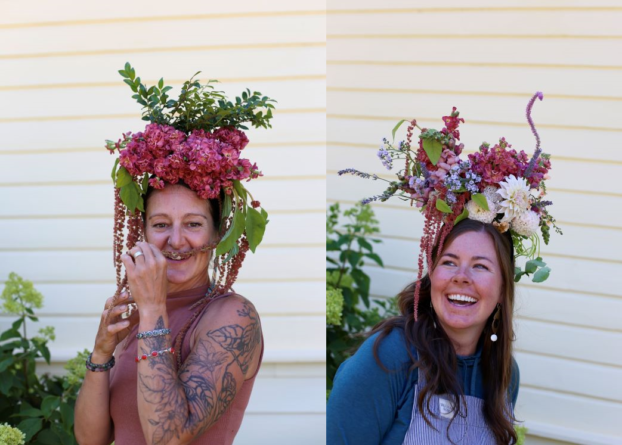
Fast forward 16 years and Tallulah Rose Flower is now based at Levens Hall in Cumbria. The school continues to teach sustainable methods choosing to support local growers and using British flowers throughout the growing season. Rachel is proud to be a UK ambassador for the Sustainable Floristry Network.
Follow:
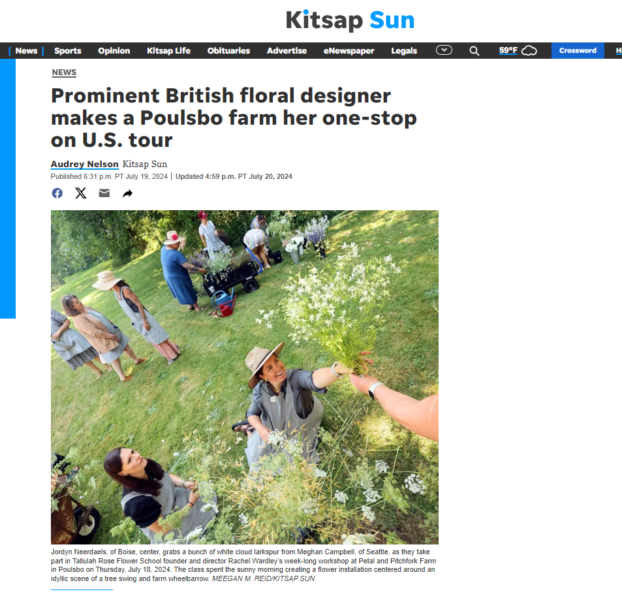
Petal & Pitchfork on Instagram
Talullah Rose Flower School on Instagram and Facebook
Stacy wrapped up her sentiments on a recent Instagram post: “If you’re a grower who aspires to learn floristry, do it now if you’re able. It’s hard to make time as a grower – it took me eight years and an email from Rachel fifteen months ago to make the leap. I’ve become more confident in my own style and expression.” She concludes by writing: “We create best when we express authentically.” I love that!
Read: “Prominent British Floral Designer makes a Poulsbo farm her one-stop on U.S. Tour
Thank you to our Sponsors
This show is brought to you by Slowflowers.com, the free, online directory to more than 750 florists, shops, and studios who design with local, seasonal and sustainable flowers and to the farms that grow those blooms. It’s the conscious choice for buying and sending flowers.
Thank you to our lead sponsor, Flowerbulb.eu and their U.S. lily bulb vendors. One of the most recognizable flowers in the world, the lily is a top-selling cut flower, offering long-lasting blooms, year-round availability, and a dazzling petal palette. Flowerbulb.eu has partnered with Slow Flowers to provide beautiful lily inspiration and farming resources to help growers and florists connect their customers with more lilies. Learn more at Flowerbulb.eu.
Thank you to Rooted Farmers. Rooted Farmers works exclusively with local growers to put the highest-quality specialty cut flowers in floral customers’ hands. When you partner with Rooted Farmers, you are investing in your community, and you can expect a commitment to excellence in return. Learn more at RootedFarmers.com.
And thank you to Johnny’s Selected Seeds, an employee-owned company that provides our industry the best flower, herb and vegetable seeds — supplied to farms large and small and even backyard cutting gardens like mine. Find the full catalog of flower seeds and bulbs at johnnyseeds.com.
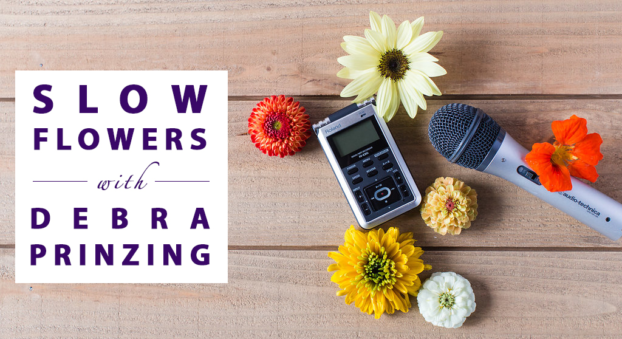
I’m so glad you joined us today! The Slow Flowers Podcast is a member-supported endeavor, downloaded more than one million times by listeners like you. Thank you for listening, commenting and sharing – it means so much. As our movement gains more supporters and more passionate participants who believe in the importance of our domestic cut flower industry, the momentum is contagious. I know you feel it, too. If you’re new to our weekly Show and our long-running Podcast, check out all of our resources at SlowFlowersSociety.com
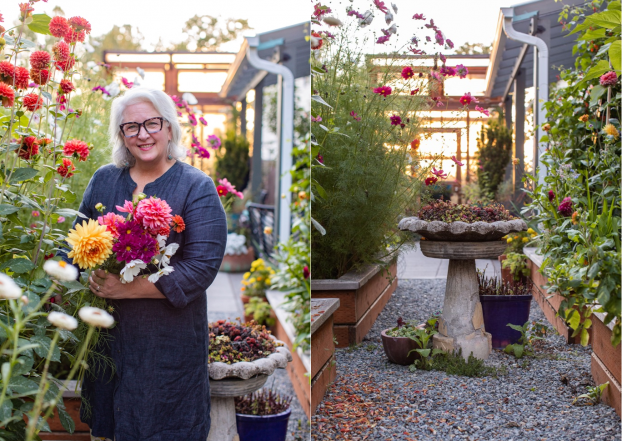
I’m Debra Prinzing, host and producer of the Slow Flowers Show & Podcast. The Slow Flowers Podcast is engineered and edited by Andrew Brenlan. The content and opinions expressed here are either mine alone or those of my guests alone, independent of any podcast sponsor or other person, company or organization. Next week, you’re invited to join me in putting more Slow Flowers on the table, one stem, one vase at a time. Thanks so much for joining us today and I’ll see you next week!
Music Credits:
Drone Pine; Gaena; Gasland
by Blue Dot Sessions
http://www.sessions.blue
Lovely
by Tryad
http://tryad.bandcamp.com/album/instrumentalshttp://creativecommons.org/licenses/by-sa/3.0/
In The Field
audionautix.com










